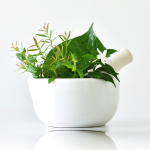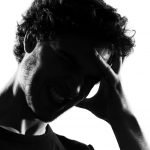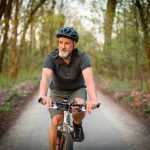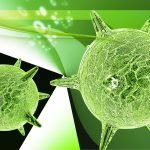Same Symptoms, New Remedy?
Joseph Kellerstein, DC, ND
James is a 47-year-old workaholic. He is dark haired and of pale complexion and quite chilly. Recently there has been a lot rolling his way in terms of business and financial reversal. Far from receiving all of this in good humor, he has been “very angry and resentful.” People have noticed a dour expression and tend to walk on eggshells around him.
With increasing hours spent at the office, his usually fastidious lifestyle has suffered. Sweets and strong coffee have been constant companions, keeping his mind revved up during the day; and beer has calmed him into a restful sleep at night.
With the increase in coffee, James noted a decrease in thirst for water, so very often coffee is his only fluid intake throughout the day. The frequency of urination, even at night, increased proportionately to his coffee consumption.
Gradually, over the past year he noticed as well a diminished force in the stream of urination. In October 2001 it became worse: It was a Friday evening. Although feeling the urge to urinate quite strongly, he was mostly unable to void. He was up very often that night, dribbling some urine at each attempt but never satisfying the urge. The next morning at the emergency room, antibiotics were given in response to a high white blood cell count in the urine. There was some relief, but it relapsed soon after cessation of the antibiotics.
Naturopathic Treatment
James first consulted me in November 2001. His symptoms included:
- frequent difficulty emptying the bladder
- ineffectual urging to urinate
- pain at the tip of the penis and meatus, with the urge to urinate both before and during urination
- mornings seemed the worst in terms of emptying, but the pain was present all day, with frequent strong urges to urinate that forced him to stop at coffee shops and gas stations while making work-related calls (see Chart 1).
Of the considered higher-ranking symptoms listed in the chart, Cantharis has violent urging and is well known to have pain especially in the tip of the penis during urination. But its hallmark is the painful burning ineffectual desire possibly with blood. It is possible, but looking at the wider context of the person, Nux seems a compelling choice for some further research. According to Hering and Allen, Nux has:
- spasmodic retention of urine, discharged drop by drop
- painful ineffectual urging to urinate
- urine passes in drops
- while urinating: burning and tearing in neck of bladder, burning and fine sticking pain in forepart of urethra, itching and burning in urethra
- meatus urinarius is painful, as if sore, before and after urinating.
Nux 200c one dose was given. The patient noted a general ease within a few hours, but improvement seemed to halt over the next two days, and would not respond to further doses or higher potencies.

I was at a loss, because it seemed as if I must move to a new remedy, but there were no obviously new symptoms to rely on. At this point, it is tempting to consider a nosode, complementary remedy or just good old Sulphur (which is also the major complement to Nux) to bring out more data in the case. But sometimes you get a wolf in sheep’s clothing. That is, the symptoms may be the same, but perhaps something has changed about their arrangement or relative intensity (i.e., the general symptoms’ surrounding may have changed).
After some questioning, I discovered that the morning aggravation had vanished. I pushed on, asking about when it was worse now. After a long scanning of thought, James rendered a beautiful “4 to 7 p.m.” (I thought I saw the ball drop into the hoop from mid court.) I gave him Lycopodium 200c, one dose. The buzzer sounded and the crowd roared. I love homeopathy.
 Joe Kellerstein, DC, ND graduated as a chiropractor in 1980 and as a naturopathic physician in 1984. He graduated with a specialty in homeopathy from the Canadian Academy for Homeopathy, and subsequently lectured there for two years. He also lectured in homeopathy for several years at CCNM; for eight years at the Toronto School of Homeopathic Medicine; and for two years at the British Institute for Homeopathy. Kellerstein’s mission is the exploration of natural medicine in a holistic context, especially homeopathy and facilitating the experience of healing in clients.
Joe Kellerstein, DC, ND graduated as a chiropractor in 1980 and as a naturopathic physician in 1984. He graduated with a specialty in homeopathy from the Canadian Academy for Homeopathy, and subsequently lectured there for two years. He also lectured in homeopathy for several years at CCNM; for eight years at the Toronto School of Homeopathic Medicine; and for two years at the British Institute for Homeopathy. Kellerstein’s mission is the exploration of natural medicine in a holistic context, especially homeopathy and facilitating the experience of healing in clients.
For the past five years, Dr. Kellerstein has lectured for his own post-grad course in homeopathy, Homeopathy by the Book. The book is the Organon, and the course mission is to develop excellence regarding the basics of homeopathic prescribing; case taking; repertory; Organon as applied to real-life practice; and case analysis skills via modeling the masters. The course runs seven weekends per year for three years; distance learning is available (via digital recordings of weekend sessions). Students can preceptor in Dr. Kellerstein’s clinic, and mentoring is available. For more information, visit homeopathybythebook.com or call 905-433-8666.










